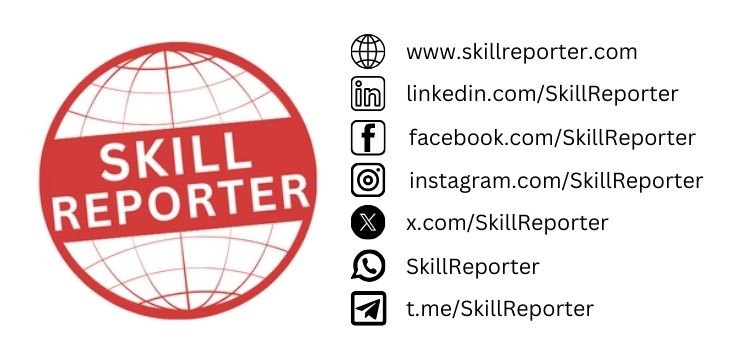Kenya: Mawego Technical Training Institute (TTI) now becomes Mawego National Polytechnic wef 01 January 2024. The institution was elevated by the Ministry of Education through the Directorate of Technical and Vocational Education and Training (TVET) early last year. With the elevation, Mawego National Polytechnic in Rachuonyo North sub-county, Homabay County, will now offer more courses than it did.
The management of Mawego Polytechnic says the institution will be on the frontline in addressing the needs of communities in Homabay and beyond. The management says it is waiting for gazettement of the TTI to confirm the elevation. Mawego is among the 12 colleges that were upgraded by President William Ruto, through the 2013 TVET Act, to national polytechnics. The President said the elevation would improve and broaden higher education. The others are Maasai Technical Training Institute, Kiambu Institute of Science and Technology, Rift Valley Institute of Science and Technology, Coast Institute of Technology, Tseikuru Technical and Training College and Sang’alo Institute of Science and Technology. The list also has Bureti Technical Vocational College, Jeremiah Nyagah Technical Training Institute and Baringo Technical Training Institute.
According to Mawego TTI Deputy Principal Leah Otieno, the elevation would enable the institution to work with different universities in offering degrees in technology. “As a national polytechnic, Mawego will also offer courses based on our curriculum. The elevation was long due as we are the oldest higher education institution in Homabay County,” she says.
Mawego TTI has offered technical courses that have enabled some of its former students prosper in different fields. Among the prominent personalities who went through the institution are the immediate former Homabay governor Cyprian Awiti, Mawego TTI’s Board of Directors Chairman Alex Kazongo, Prof Bernard Aduda of Egerton University, and Kenya Diaspora Alliance Chairman Shem Ochuodho.
“Technical training was associated with academic failure. Very few people thought graduates of such colleges could excel in life. Being admitted to university for a degree course was everything,” the Kenya Diaspora Alliance boss said. Dr Ochuodho further said that many developed countries promote technical training, citing the southeast Asian economic tigers, Europe and North America. “These developed countries take their best brains for technical training rather than university degree programs. Kenya’s two levels of government should put more emphasis on technical and vocational training. These institutes need more manpower and equipment,” Dr Ochuodho says.
TVET continues to be a catalyst for social-economic development in Kenya. The growth of Mawego TTI over the decades has had an impact on the economic and social status of the area. Lida township residents are now using some of their lands to put up hostels for the growing number of students. With the elevation of Mawego, the number is expected to grow even more. Fewer than 700 students are accommodated at the institution’s hostel. The rest have to look for shelter elsewhere.
Mawego started as a trade school in 1952. It was was established by the Outreach Brothers of the Netherlands. It offered artisan masonry, leather work, tailoring, carpentry and other training. Mawego also had a primary school section. In 1967, the government took over the management of Mawego, making it a national technical secondary school. It grew over the years to its current level, offering programs in building and construction, civil and mechanical engineering food and beverage, information technology, agriculture, banking and finance, social work, business management, fashion and design and many others. The institute also has a driving school. The deputy principal says Mawego TTI has 178 instructors and at least 84 non-teaching staff. The number is expected to grow with the elevation to a polytechnic. “The employees attend to the more than 6,000 students,” the deputy principal says.
The success of the institution has enabled it to introduce courses in medical and pharmaceutical technology, which will begin in January. It has also introduced programmes in aquaculture. “The TVET Directorate ranked us the best in academic performance, with a score of 71 percent. Our engineering and electrical works trainees are sought-after countrywide,” Ms Otieno says. “The best plumbers in Kenya trained here.”
According to the deputy principal, the management of Mawego Polytechnic wants to introduce a dual training model. This entails students spending half of their time in class and the other half in the field, applying what they have been taught. She says employers prefer students who have undergone such training as opposed to those coming straight from university. “We are known for offering practical skills and solutions that can be applied in real-life situations. By the time our students graduate, they are fully prepared for the job market,” Ms Otieno says.
A Mawego Polytechnic student can be self-sponsored. He or she can also seek support from the government through the new funding model. A number of learners have their fees paid by agencies like the National Government Constituency Development Fund (NG-CDF), banks and Non-Government Organizations. The deputy head says some trainees are supported by their local lawmakers. “The fee for others is paid by the National Youth Service. The KCB Group also has a student support scheme known as Tujiajiri,” she says. Mawego TTI students are normally taken through practical lessons in laboratories and workshops. For agriculture trainees, trips to mechanized farms make them acquainted with skills they need to use in addressing food insecurity.
“There are plans to introduce more competitive and marketable courses to align with the changing times and trends,” Ms Otieno says. Having a big population of students and workers stretches available resources. The greatest challenge Mawego Polytechnic faces is water shortage. What the Homabay Water and Sanitation Company supplies is not enough for the polytechnic fraternity. To address this problem, the institution has sunk a borehole. With continued support from the national government, the students, workers and Board of Directors hope the water and other challenges will be addressed.



